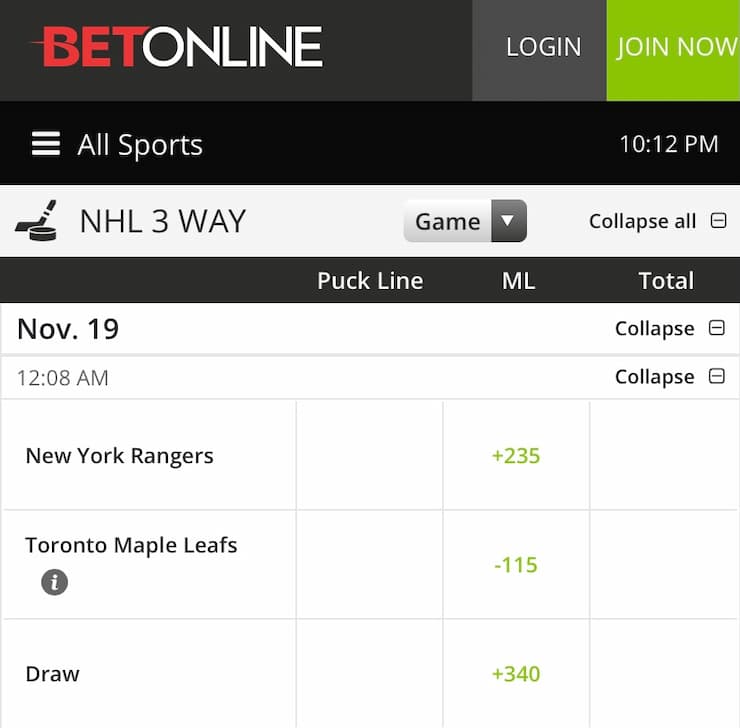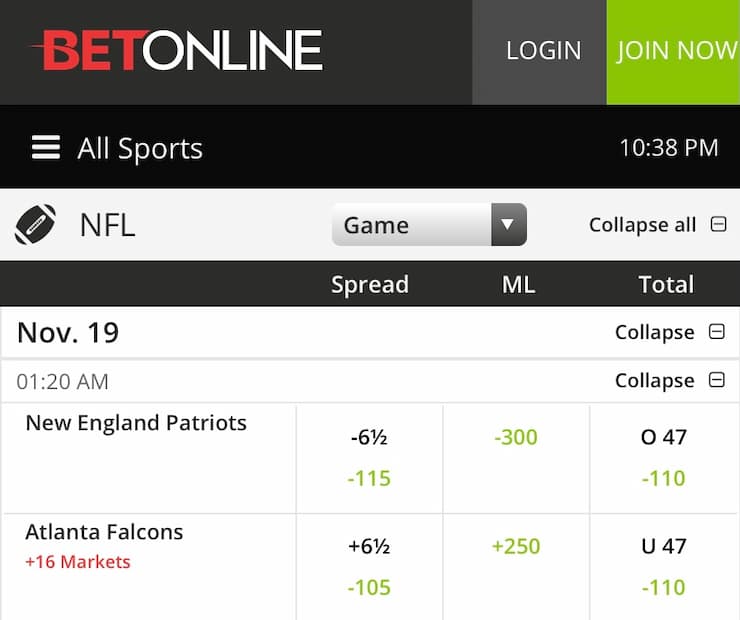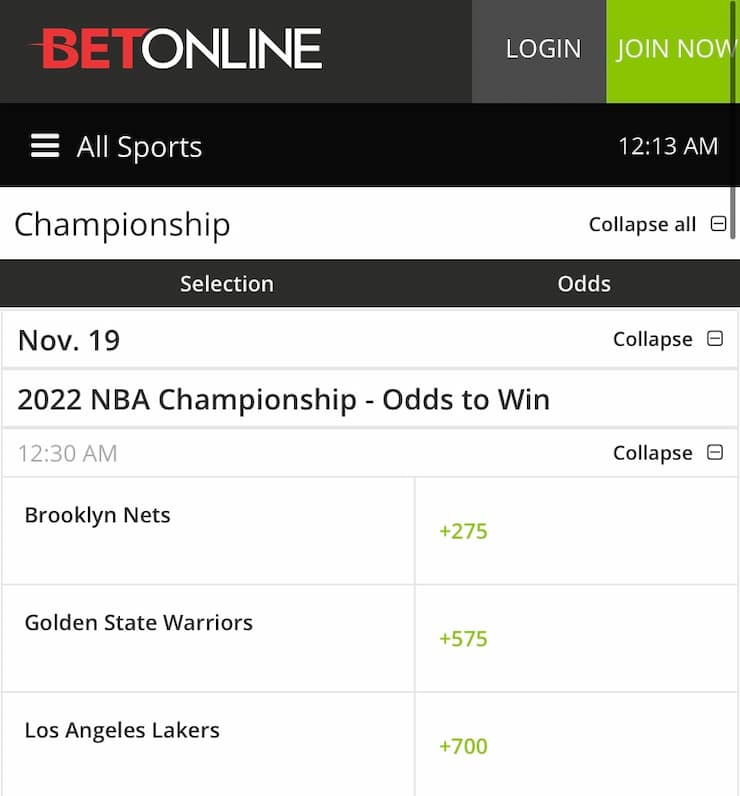If you took the time to sit down and speak with just about any professional sports bettor in the world, almost all would state that being to hedge a bet is one of the strongest tools you can possess in your betting armory.
Hedge betting allows you to lock in profit and limit losses. Throughout this article, we’re going to look at how hedge sports betting works, where you can apply a hedge bet, which sports it works best with and how you can make guaranteed profits with hedge betting.
What is Hedge Betting?
When you hedge a bet, you’re looking to do one of two things:
- Create a book that guarantees you a profit from all results
- Create a book that limits your loss on all results
Hedge betting has been designed to take advantage of the odds set by a bookmaker and then place additional bets as those odds move to lock in profits. It may sound like a complex process, but hedge betting is very simple once you familiarise yourself with it.
It differs from conventional betting as it requires you to place multiple bets on the same market, where a standard bet is one you would place and then wait for the outcome of that market to see if you had won or not.
The key aspect that you need to note with hedge betting is that you need those odds to move. A successful hedge would see a player place a single bet on one outcome, before then placing a bet on a second outcome at odds that would guarantee a win.
Where Does the Phrase “Hedge a Bet” Come From?
To hedge your bets means that you mitigate your risk in a bet that you’ve placed. The term “hedge” is a plant or bush that is commonly used to enclose things. In the real world, this might be a garden or house boundary.
The link to betting is that you create a bet where you can’t lose and in turn, lock in your profit. The hedge term is the security for the bet and signifies the fact that no one, or in this case, nothing, can now penetrate that bet and make it lose.
In the early 17th Century, it was used a lot in financial circles where a smaller loan would be used to secure larger loans and often linked to debts. The link to betting then came about a century later when people would take out one big bet, and then multiple smaller bets to mitigate any losses. This process is very much how it works in modern-day betting.
Hedge Betting Examples
One of the easiest ways to explain how hedge betting works in the real world is to work through a couple of examples. It’s important to note that each of these examples can be applied to many sports and betting markets.
Our first example is going to look at some MLB markets. We’re going to start with bets placed on some future markets and more specifically the winner of the World Series.
The market includes all teams and at the start of the season, it can be relatively wide open, although there are always teams who are grouped as favorites within the top 3 or 4 picks.

The above market shows that Dodgers are priced at +550, Astros at +750 and Yankees at +1000. For some reason, BetOnline has locked the price for the Angels, but this is irrelevant for our example.
Let’s assume that we place a $100 bet on the Dodgers to win at +550. This means that we would make a $550 profit should our bet come in.
The Dodgers managed to get to the World Series Final, playing against the San Diego Padres. The odds to win the World Series are now as follows:
- Dodgers: -200
- Padres: +280
At the minute we have bet $100 and are set to win $550 profit if the Dodgers win. But we decide that it’s time to hedge our bets and to do this, we need to bet on the only other outcome, which is the Padres to win the World Series.
Let’s assume that we place $100 on the Padres at odds of +280. This would mean that if the Padres won, we would win $280. We have money invested elsewhere, so let’s look at each scenario.
- Dodgers win = $100 staked on Dodgers to win at +550 makes $550 profit. Minus the $100 wagered on the Padres to hedge our initial bet, makes $450 profit.
- Padres win = $100 stakes on the Padres at +280 makes $280 profit. Minus $100 wagered on the Dodgers to hedge our initial bet, makes $180 profit.
As you can see, regardless of the outcome of this game, we have hedged our bets and we are now able to lock in a profit for each result.
One of the best things about hedge sports betting is that you can create markets to return as much or as little for each result as you would like. You just need to know the right amount to stake at the odds you are given.
Sometimes it’s not always about locking in a profit and you can also use hedge betting to limit losses or even back out of a bet that you have now decided doesn’t offer great value.
Let’s look at how that might work with an NHL game between the New York Rangers and the Toronto Maple Leafs.

As you can see Toronto is a big favorite over New York to win the game, priced at just -115. You decide to place a bet of $115 to win $100 if they do win the game.
However, after some deliberation, you decide that there is no value in the bet at this price, so you want to get out of it.
Bookmaker markets are set up in a way that they earn commission from all bets. So given that this is a 3-way market, the odds are each adjusted slightly so the bookmaker makes a profit.
As a player, you can choose one of two routes.
- You can bet an equal amount on each outcome and take a small loss on each result.
- You can adjust your bet amount to create a more balanced book for each result.
Let’s take option one and see where we get with placing an equal amount on each bet.
We’ve already placed $115 on Toronto to win, so we now need to place $115 on the Rangers and the draw, paying out the following:
- Toronto win = $115 profit, minus $230 from other two bets = $115 loss
- New York win = $235 profit, minus $230 from other two bets = $5 profit
- Draw = $340 profit, minus $230 from other two bets = $110 profit
Given that Toronto is strong favorites for this game, this is likely not the route to take, but it does show that with either a New York win or the draw, then we make money.
A better way to do it would be to adjust our bet amount to limit losses on certain results. A good spot here would be to reduce bet sizes on both New York and the Draw to just $50 and see where that gets us.
- Toronto win = $115 profit, minus $100 from other two bets = $15 profit
- New York win = $117.5 profit, minus $165 from other two bets = $47.5 loss
- Draw = $170 profit, minus $165 from other two bets = $5 profit
At this point, we make a small loss on a New York win, but still a small profit on a Toronto win or the draw. We can play with the numbers even more or use a hedge bet calculator to adjust what is paid out from each bet as we please.
Discover Our Top Betting Guides
Hedge Betting Strategy
As we’ve stated, all professional gamblers will use hedge betting at some point. Lowering risk and eliminating variance is one of the key ways that people consistently make money from betting online.
Having the ability to know when to hedge bets and when to let things ride is a skill and there are never two scenarios in sports betting that are ever the same.
We wanted to guide you through a couple of strategies and hedge betting concepts that allow you to recognize when hedging your bets is the right play.
Parlay Hedge Betting
Parlay bets are some of the most popular in the US as they allow you to win huge sums of money from a relatively small investment. They are big odds, but big risks.
Most weekend warrior punters never think to hedge a parlay bet, but most pro bettors will be thinking about a possible hedge before a whistle has been blown
The beauty of the hedge bet with a parlay is that don’t need all results to come in to win your bet. Let’s look at a quick example of how this might work.
Let’s assume that we’ve placed a Sunday parlay on the NFL. We’ve made five picks at the price was +3100 and we place a $100 bet, meaning that we win $3,100 should all five picks come in.
We get the first four results right and we are sitting pretty going into the last game. At the minute, it’s all or nothing, so it’s time to hedge our bets and lock in a profit to save risking everything.

The final game on our parlay is the New England Patriots versus the Atlanta Falcons. It’s a tough game to call, although you can see that the Patriots are strong favorites for the game at -300 with the Falcons at +250.
We decide to place $500 on the Falcons to win at odds of +250. This means that we would make a $1,250 profit should they win. If they lose, then the Patriots win means our parlay comes in. This would be $3,100, minus the $500 staked on Atlanta, to see a profit of $2,600.
So, hedging our bets meant that, going into the final game, regardless of who won, we were going either profit $2,600 or $1,250. Again, we could have adjusted the bet size on Atlanta to allow for fewer or more winnings for each result. This comes down to the amount of risk you want to take.
Use Hedging to Limit Losses
When we talk about hedging bets, we often mention locking in profits on all results. This is the dream scenario and to have a guaranteed income from all results is as good as it gets.
Many amateur players don’t realize that you can limit your losses from hedge betting as well. We’ve mentioned this a couple of times already, but don’t fall into the trap of simply hedging your bets to win money. If there are times when you know a bet is going to lose, use a hedge to limit those losses.
The potential scenarios around this are endless and we could talk all day about when to do this. Easy places to start are when you pick a team that is losing their form and look likely of running out of heat before your bet is settled.
This could link to loads of sports, but things like Super Bowl and World Series winners are great examples of this. You could even be mid-game where you bet in-play as they are about to get knocked out of a playoff game.
Workout Potential Hedge Scenarios Prior to Placing Bets
If you’re new to betting, then knowing what bet types are best suited to a potential hedge scenario is not easy. As a rule, for all bets that you place, consider where odds might move and where you can get in to hedge a bet.
We keep jumping back to the likes of Super Bowl winners, but these are some of the best markets to use, especially for beginners. Try and see where your team would need to get to for the price to drop enough to create a hedge situation.
For example, if your pick for the overall Super Bowl winner gets to the playoff, then the odds are going to drop massively. You can even hedge in a way that you limit losses for each playoff game, but still, have a profitable bet the further your team continues.
How to Hedge Your Bets
There are several ways that you can hedge your bets. The two most common are back-back bets and back-lay bets.
The concept behind a back-back bet is that you place wagers on two or more events at different odds to lock in a guaranteed return for each of those outcomes.
For example, let’s assume you backed the LA Lakers to win the NBA Championships at the start of the season. They make it to the finals, and you decide to hedge. To do this you need to place a bet on all other outcomes that would make your bet lose. In this case, it would be for the other team to lift the trophy.
You place a bet on the other team and you’re now at a point where you’ve backed both possible results at some point.
Using a betting exchange is arguably easier, but they are less accessible (at the time of writing) for US players so it’s not always possible.
Laying a bet allows for a lot more leeway when it comes to hedging. To lay a bet means you bet against that result. So, if you place a lay bet on the LA Lakers to win the Championship, then you essentially need any other team to win for you to make money.
The reason why these bets are a lot more flexible in that you can lay a bet whilst still having a host of possibilities still open for your bet.
Let’s stick with the LA Lakers to win the Championship as an example. Let’s assume you backed them at the start of the season at +1000. They make it through the regular season to the first playoff game and are now priced at +500 to win the Championship.
A betting exchange would allow you to then lay the bet. As the price for your bet has now reduced, it means you’re able to lock in a profit as you have both backed them to win and laid them to win.
Like all hedge betting types, when you come to lay the bet, you can choose your stake to manipulate how much you will win from each result. You can make it so that the amount is equal, or you can weigh one result over another. Use a hedge bet calculator to make this process a lot easier.
Hedge Betting in Sports
Different sports will require different processes for hedge betting. Some offer better opportunities than others and below we’ve looked at a range of sports to deep-dive into how and why they might be better suited for these bet types.
NFL Hedge Betting
We’ve used football and in particular the NFL for several examples already in this article. One of the main reasons for this is that it leads itself to hedge betting incredibly well. The range of markets and the number of betting sites that offer odds on NFL games allow you to hedge bets easier than most.
Future bets generally work the best for NFL hedge betting. We’ve used the Super Bowl example, already and this must be one of the most common examples for hedging bets in all sports betting.
You can adapt this process again and make it even easier by choosing two or more picks for the same market. If you were to be betting on the Super Bowl you might choose two or three teams to win it, meaning that you hedge on a season-long bet.
The Super Bowl works well for this as it’s rare that favorites to win go off lower than around +500. The table above shows Super Bowl betting that is still midseason, and you can see how tight it is.
Why close betting prices and longer prices work so well with hedge betting is that you afford to make more picks and still churn a profit. For example, even if you backed Buffalo, Tampa Bay and Green Bay at $100 each, a Buffalo win would still mean you make $300 profit, as would Tampa and $600 from Green Bay.
NBA Hedge Betting
NBA works in a similar fashion to NFL, but there are several more creative lines that you can take with NBA that generally pay off better than the same bets would if they were applied to football.
A common bet is by picking a single team to win multiple titles in the same season. This would include the division, conference, and finals.
By hedging your bets over the three sectors, you have a much higher chance of winning with a single team.

Let’s look at Golden State Warriors as an example of this. They have the following prices to win the Division, Conference, and the Championship:
- Pacific Division – +130
- Western conference – +285
- Championship – +575

As you can see, the odds get larger with each step. There’s a strong chance Golden State will get to the Championship Final as one of the favorites but backing them to win the division and conference hedges your bet should they fall short. Obviously, if they do win, they sweep the lot adding even more value.
What’s key to note is that, when you hedge like this, you don’t have to increase your stake, just spread it accordingly. So, if you were going to bet $100 as an example on GSW to win it all, then you could hedge by putting $50 on this bet, but also $25 on each division and the conference for security.
The worst-case here is that if they only make division, you get back $57.50, which would be $57.50 more than if you’d hedged. A win in the conference would lock in a profit and then the final would be a freeroll from there.
Hedge Betting in Horse Racing
Horse racing is one of the original sports that hedge betting was used for. The concept remains the same for most, in that you can bet on multiple horses to win a single race.
What a lot of people do to hedge in horse racing is take on a short-priced favorite along with a longer-priced bet in the same field. The odds don’t really matter, but as an example, you could quite fancy a horse at odds of +1000, but also back the +200 favorite as well given they are very short.
Hedge Betting in Casinos
Hedging one’s bets are not just linked to sports but in fact, any financial market. Even the stock market has scenarios where people hedge trades and try to make sure they make money on all investments.
Anything that is linked to finance often has some ties to the casino. After all, they are a numbers game and even the house has the edge, there are ways that you can still hedge your bets when you play at the casino.
Hedge Betting Roulette
Roulette is a popular game where people like to hedge bets. The most common is where you might bet on an inside number and then also include an outside even money bet on something like black or red.
The idea is that the inside number bets are hard to come by, but the outside bet will cover some of the times that it misses, allowing you win your stake back and essentially having a free play at the inside of the table, which is where the biggest profits are made.
However, the issue here is that roulette has a house edge, so the more bets that you place only increase the negative expectation. Even an outside bet like red or black is not a true 50:50 possibility given that Zero (green) is included on all tables.
Craps Hedge Betting System
Craps works in a similar way to roulette in that you’re looking to place two bets, with one slightly smaller bet to cover the initial play. The most common for this is betting on the come-out roll.
You would start by betting on the pass line wager. Your backup bet would then be on any craps. The wagers would negate each other somewhat meaning that there are fewer combinations that can be rolled which would mean you win nothing at all.
Hedge betting for craps or roulette for that matter is much less effective than sports betting. You’re essentially just delaying the inevitable and you’re likely better off simply placing straight bets to maximize the times that you do win with a proper bankroll in place to cover the losses.
Hedge Betting In-Play
Most of the information on hedge betting so far has been related to pre-game and future bets. You need to be able to include in-play betting in this as well, as this has a key role to play.
In-play betting is tougher to execute as it involves timing, but with a little bit of practice, you’re going to be able to get the hang of it.
There are lots of scenarios where in-play betting can be used. One of the most common is to bet against your pick mid-game when it looks like they might lose or it’s a close game.
For example, let’s say you’ve backed the Patriots to win the Super Bowl at odds of +1000. They get to the Conference final, and they are 13-10 down going into the 4th quarter.
This would be a good time to hedge your bets in case they don’t make the Super Bowl at all, let alone win it. Here we’d be looking to back the opposition for a price that would at least cover our initial stake or even turn a profit should they go on to win.
Only live betting markets will allow you to do this. This is the only way that you can react to future bets and hedge them whilst games are running with your pick active.
Explore Our Expert-Written Sports Betting Guides
Is Hedge Betting Worth It?
Like all betting strategies, hedge betting has its pros and cons. We’re going to quickly run through a few of these to work out if hedge betting is worth it?
Pros
The ability to lock in a result for all outcomes of a game is an incredibly powerful tool. Being able to get to a point where the outcome of the game is irrelevant for the money that you will hopefully win, is the dream when it comes to betting. It’s free money and you’ll never work less for results like this.
Hedge betting can also allow you to limit losses. Sometimes you can see bets that are not playing out as you would expect and it’s time to get out. It’s better to lose some than all, especially if the writing is on the wall.
But the strongest asset that hedge betting brings is the ability to choose your stake to then manipulate the amount of money won or lost on each outcome. You can take your research and strategy and still apply this to hedge betting which will then reflect how much money is riding on each possible result.
For example, you can make it, so an NHL game breaks even on two outcomes and then your profit is all on your original pick. It’s a risk-free bet. You can’t lose! You can also change it so you make the same money on each bet.
Cons
The downside is that hedge betting limits your maximum winning potential. So, if you’ve backed a team to win the Super Bowl at odds of +1500, you’ve clearly done your research that’s paid off when they get there.
To then dilute your bet (hedge) means that you limit your payout. Let’s assume that you halve the potential winnings, which means that you must ask yourself if a price of +750 now offers good value for your pick?
Hedge Betting – Conclusion
Hedge betting is one of the strongest betting strategies that you can use. Using it correctly makes it incredibly powerful and it’s something that all professional bettors use at some point.
You need to know when the best time to use it is and then target these opportunities to lock in profit and limit losses. Future and pregame bets are the best for this, coupled with live betting to make the hedge is a deadly combination.